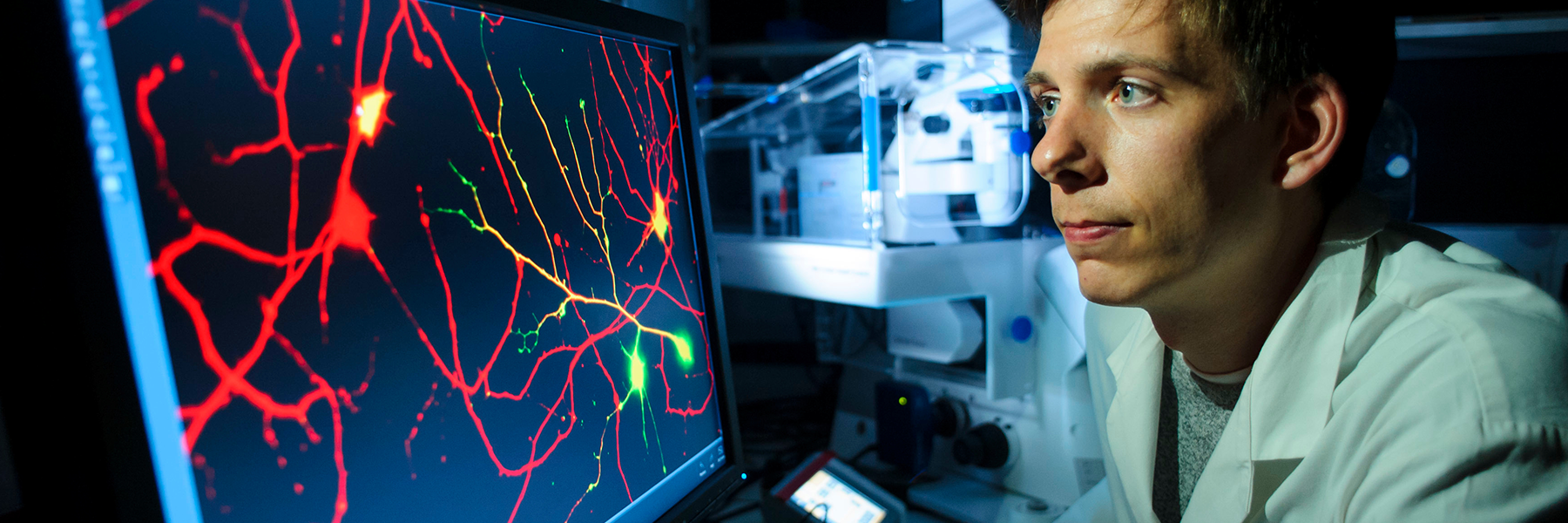Drug screening is the process of identifying and testing potential treatments on a model system before taking them into clinical trials. To find out what a model system is, go to our stem cells page.
Our researchers have established a drug screening platform that uses robotics and automated computer microscope imaging. The platform tests thousands of “small molecules” on human brain cells in a dish to see if they improve the health of the cells. The robot can work all day and night, generating accurate and unbiased results. This also frees up the scientists to analyse the findings and plan their next experiments.
This one’s looking good!
It is exciting when one of the molecules shows a positive impact on cell health: perhaps the cell’s shape is more rounded, or it forms better connections with its neighbouring cells. This molecule is now a candidate for a potential treatment in patients. Our scientists will then make sure that they can repeat the findings in more samples, investigate the biology behind the effect and read all the scientific literature about it. If after all this, it is still showing positive outcomes, it will be earmarked to be taken through to a clinical trial or for further tests to ensure it is suitable to be given to humans.
What are the “small molecules” being tested?
These are simply chemicals obtained from pharmaceutical companies or new ones developed from our research. Some of these small molecules are from licensed drug libraries that have been approved and, in some cases, are already being used in the treatment of other conditions. If we “get a hit” with a molecule from one of these licensed drugs it is very good news, because if its safety in humans is already established, this saves a lot of time and money.
To speed up the process of finding new drug candidates even further, we prioritise the screening of molecules that we already think might work. We select these molecules by analysing data in a process called meta-analysis. Find out more about this on the data research page.
Now read about our data research.





